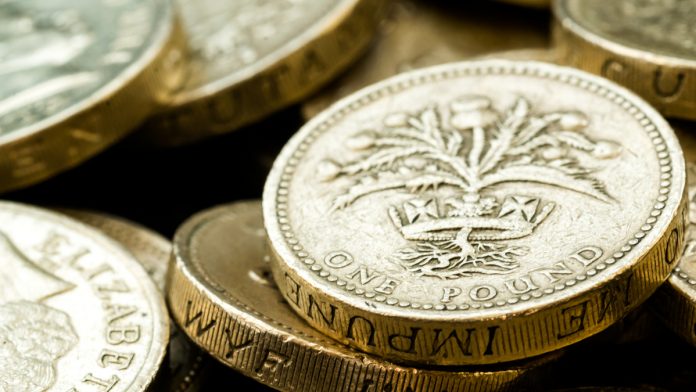- Pound (GBP) fell after unemployment rose yesterday
- UK GDP data is expected to fall -0.2%
- Euro (EUR) rose despite mixed German ZEW economic sentiment
- Eurozone industrial output is due
The Pound Euro (GBP/EUR) exchange rate is falling, extending losses for a fourth day. The pair fell -0.2% in the previous session, settling on Tuesday at €1.1607 and trading in a range between €1.1608 – €1.1671. At 08:35 UTC, GBP/EUR trades -0.05% at €1.1602.
The pound edged lower in the previous session after UK jobs data showed that the UK labour market weakened further. The unemployment rate ticked higher to 4.3% up from 4.2%, the highest level since 2021 and the number of jobs fell by 200,000, the largest drop and employment outside of a recession.
However, wage growth rose to a record high of 8.5%, up from 8.2%, and wage growth excluding bonuses remained at 7.8%, a record high with last month. Wage growth is above inflation, which is cooling below 7%. While this is good news for households suffering in the cost of living crisis, it also keeps pressure on the Bank of England to raise rates further.
Attention now turns to UK GDP data, which is expected to show that the UK economy contracted 0.2% month on month in July after rising 0.5% in June.
Given the weakening in the pound particularly against the US dollar the market is assuming that peak rates are near and that the Bank of England may struggle to hike interest rates beyond next week.
The euro managed to push higher yesterday after Spanish inflation unexpectedly rose to 2.6% and after German ZEW economic sentiment unexpectedly ticked higher.
The closely watched German economic morale index rose for a second straight month to -11.4, up from -12.3 and ahead of forecasts of -15. The data suggests there’s a cautious optimism in the outlook for the eurozone’s largest economy. However, the current conditions indexed dropped to 79.4 a record low.
Looking ahead, attention now turns to eurozone industrial production, which is expected to fall nought .7% month or month in July after rising N .5% in June. Weak data could weigh on demand for the euro.





